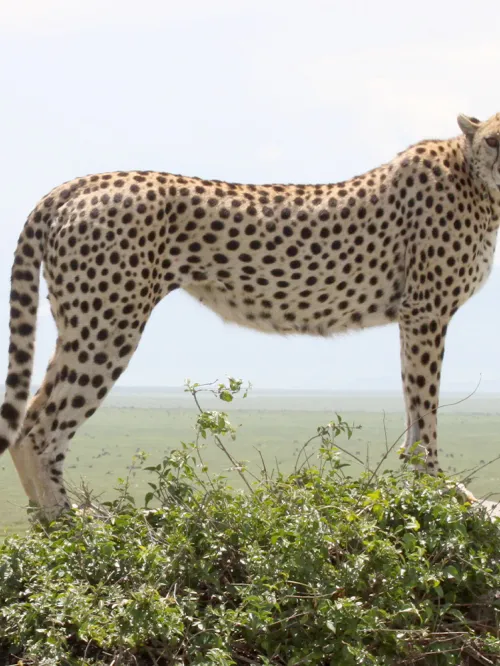Our work in Africa
Humane World for Animals tackles the root causes of animal cruelty and suffering to create permanent change. We make change at scale, advocating for policy change at all levels of government and working with companies so that they can be kinder to animals their businesses impact. We work in partnership with communities, bringing diverse expertise to the most complex issues, and doing it all with a compassionate and welcoming approach.
Our impact
We envision a world without animal cruelty, where humans and animals coexist peacefully. In Africa, we work to promote non-lethal solutions to human-wildlife conflicts, improve the lives of animals raised for food, end the illegal wildlife and captive big cat trade, advocate for a more plant-forward food system, increase access to spay/neuter services and primary veterinary care for companion animals, ending cosmetics animal testing and helping animals in disaster situations.
outside Kruger National Park have received an immunocontraceptive vaccine
have a permanent home at our sanctuary in Liberia
in South Africa have been sterilized through our Healthy Pets, Healthier Communities initiative
Latest News
The Canadian Polar Bear Hunt
Canada holds more than half the world's population of polar bears, most ranging either solely or partially within the vast borders of Nunavut, a territory spanning nearly 2 million square kilometers. These ice-dependent bears—beloved by people worldwide—have become a symbol of wilderness
Human Toxicology Project
Humane Society International (HSI) Europe is actively working to put an end to animal testing—permanently. In partnership with affiliates The Humane Society of the United States (HSUS) and Humane Society Legislative Fund, HSI is campaigning globally to promote greater reliance on proven
Equine Issues
Through owner education and hands-on care, we're helping to improve life for working equines. HSI In many developing countries, working equines serve important roles as transportation and labor. In some areas, they form the basis of the rural economy. The poorly maintained
Alternatives in Product Testing
Alternatives to the use of animals in product testing include the elimination of redundant or needless study requirements, the replacement of animal tests with non-animal methods, and the modification of animal-based tests to both reduce the number of animals used and to
Hop to It, Europe!
Update: On 19 February 2009, HSI Europe celebrated a major milestone in this campaign following a move by the European Commission and Member States to accept 21st century cell-based methods as full and complete replacements for cruel and outdated skin irritation tests
Alternatives in Scientific Research
In contrast to product testing, in which some animal use is required by law, there is no law requiring the use of animals to study basic biology, or the pathology and treatment of human illness. Here, animal experiments are a carry-over from
Validation of Animal Tests
Although some animal tests in use today were created nearly 80 years ago, most have never been formally validated (i.e., assessed in multiple laboratories to see if they reliably give the correct answers). However, there is a great deal of scientific evidence
Transatlantic Regulatory Co-operation
In light of today’s global marketplace, a meaningful reduction in animal testing can only occur if different countries are prepared to recognise and accept the results of validated alternative methods. Otherwise, companies will be forced to perform different tests to satisfy different
Scientific Research
The great majority of animal use for experimental purposes can best be described as “curiosity-driven” research. Animals who have been purpose-bred, captured from the wild, or purchased from pounds, animal shelters, and animal brokers can be subject to a seemingly limitless variety
Help us end animal cruelty
Start saving lives today by making a one-time gift—or protect animals worldwide all year long with a monthly contribution.
